Prof Lars Ährlund-Richter
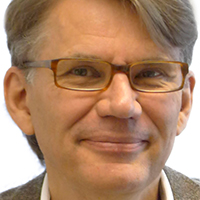
Lars Ährlund-Richter is Professor of Molecular Embryology and research group leader at the Unit for Paediatric Oncology, Dept. of Woman and Child Health, Karolinska Institutet, Stockholm, Sweden. Recent research concerns stem cell derived micro-environments and applications in tumour research. Lars Ährlund-Richter was 2006 a Member of the ISSCR task force; ’Guidelines for the conduct of human embryonic stem cell research’, and 2008 Member of the task force on ’Clinical Translation of Stem Cells’. Member of the Regional Ethical Review Board in Stockholm since 2014. Lars Ährlund-Richter is also representative of the union (SACO) in the Board of Research and the Recruitment Committee at Karolinska Institutet, and the representative for Equal Treatment at the Dept. of Womens and Childrens´s health.
Prof Ährlund-Richter spoke on: Sex-related differences in cellular responses - implications for stem cell biology in Plenary Session 4 Understanding Effects and Interactions between Sexual Dimorphism, Gender and Environment at the Gender Summit 4 EU 2014.
Ines Anitua
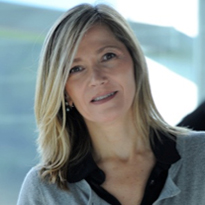
CEO, Automotive Intelligence Centre (AIC), Spain.
Ines Anitua, holds a BA in Social Sciences and Information, with a concentration in marketing, from the University of the Basque Country. She also holds an MBA from the University of Deusto (INSIDE). Anitua began her career as a consultant and has more than fifteen years of consulting experience in different sectors including government, technology and the automotive industry. Since 2005, Anitua has served as CEO of ACICAE-Basque Automotive Cluster, an industry which represents 20% of Basque GDP. During her tenure, she has implemented dramatic changes in how to manage this type of industry group, prioritizing strategic vision, innovation and internationalization. Since 2006 she has been involved in the creation of the AIC-Automotive Intelligence Center, a unique value generating center backed by Basque institutions with the support of EU. A major group of businesses is also involved in the Center. She is the CEO os Automotive Intelligence Centre (AIC). AIC was inaugurated in January 2009, and Phase 2 of the project launched in April 2010. In all, some 38,000 square meters provide a home for R&D units, development units and laboratories, with 25 firms housed there, including multinationals and family businesses. The third enlargement (Phase 3) is now under way. She is a member of the Board of Basque innovation agency Innobasque and of several corporations like Azterlan, Tecnalia and APD, and also acts as an expert to a number of organizations. Anitua recently received the AED Business Award in recognition of her professional achievements, and was named one of Spain’s top 20 female executives by the financial newspaper El Economista. She is also a regular speaker and lecturer at economic forums and seminars.
Ms Anitua spoke in Plenary Session 1 Best Practices for Gender Policy in Research Organisations at the Gender Summit 4 EU 2014.
Prof Paul Boyle
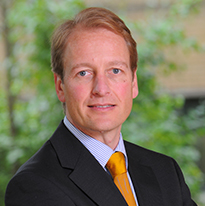
Chief Executive, Economic and Social Research Council (ESRC), UK, President, Science Europe.
Professor Boyle took up the post of ESRC Chief Executive and Research Councils UK (RCUK) International Champion in September 2010. In October 2011 he became President of Science Europe which is based in Brussels and is an association of 53 major European Research Funding Organisations (RFOs) and Research Performing Organisations (RPOs). Before joining the ESRC Professor Boyle was Head of the School of Geography and Geosciences at the University of St Andrews. His research focused on population and health geography and he was Director of the ESRC funded Longitudinal Studies Centre – Scotland, Co-Director of the ESRC funded Centre for Population Change, and Co-Investigator on both the Wellcome Trust-funded Scottish Health Informatics Programme and the ESRC-funded Administrative Data Liaison Service. Prior to moving to St Andrews in 1999 he was at the University of Leeds.
Prof Boyle spoke on Mainstreaming ‘Gender and Other Diversity’ Dimensions in Science Europe Strategy and Activities in his Keynote on Day 2 at the Gender Summit 4 EU 2014.
Chancellor Nancy Cantor (GS4EU)
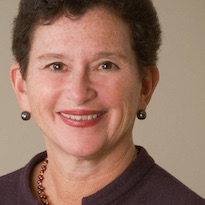
Rutgers University – Newark, USA.
Nancy Cantor PhD is Chancellor of Rutgers University – Newark, a post she assumed in January 2014. A distinguished leader in higher education, she is recognized nationally and internationally as an advocate for re-emphasizing its public mission. This entails a view of the university not as a traditional "ivory tower," but as a public good, an anchor institution that collaborates with partners from all sectors of the economy to fulfill higher education’s promise as an engine of discovery, innovation, and social mobility. Prior to her current position, Cantor was Chancellor and President of Syracuse University, where she led multi-faceted initiatives that built on the universities historical strengths, pursuing cross-sector collaborations in the City of Syracuse that simultaneously enrich scholarship and education, spurring transformation of this older industrial city. These local engagements in key areas—such as environmental sustainability; art, technology, and design; neighborhood and cultural entrepreneurship; and urban school reform—resonate nationally and globally, demonstrating the impact and importance of engaged scholarship and the inter-connectedness of the pressing issues of our world. The breadth, depth, and success of these efforts earned Chancellor Cantor the 2008 Carnegie Corporation Academic Leadership Award. Previously, Cantor was chancellor of the University of Illinois at Urbana-Champaign, provost and executive vice president for academic affairs at the University of Michigan and senior research scientist at the Institute for Social Research, and chair of the department of psychology at Princeton University. A fellow of the American Academy of Arts and Sciences and a member of the Institute of Medicine of the National Academy of Sciences, Cantor is a board member of the American Institutes for Research and the New York Academy of Sciences, co-chair of the American Commonwealth Partnership’s Presidents Council, and a member of the Steering Committee of the Anchor Institutions Task Force. Chancellor Cantor lectures and writes extensively on the role of universities as anchor institutions in their communities, along with other crucial issues in higher education such as rewarding public scholarship, sustainability, liberal education and the creative campus, the status of women in the academy, and racial justice and diversity.
Chancellor Cantor spoke on: Reconceptualising Human Capital in Plenary Session 3 Maximising Capacity of Science Human Capital and Knowledge Communities at the Gender Summit 4 EU 2014.
Dr Shewley Choudhury
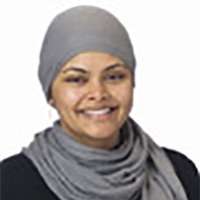
Deputy Head of Basic Careers, Wellcome Trust, UK.
Shewly Choudhury PhD is the Deputy Head of Basic Careers and works with the Head of Basic Careers to develop and implement the Wellcome Trust’s strategy and policy on basic (non-clinical) research career schemes in the UK, ensuring delivery against the Trust’s mission. Shewly’s particular responsibility is to oversee and direct the Basic Science PhD and Fellowship Training Programmes and works closely with researchers and other stakeholders. Since joining the Wellcome Trust in October 2005, Shewly has held a number of roles in Science Funding and was seconded to the Strategic Planning and Policy Unit. Shewly has a BSc in biological sciences from the University of Leicester and a PhD in neuroscience from the University of Cambridge.
Dr Choudhury spoke on Learning from PhDs about their career issues: the Wellcome Trust Basic Science Career Tracker during the Knowledge Exchange Forum on Day 2 at the Gender Summit 4 EU 2014.
Mario Conci
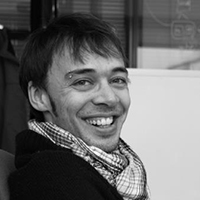
Researcher, Fondazione Bruno Kessler, Trento, FESTA Project Partner, Italy.
Mario Conci holds a Master Degree in Cognitive Science. He is currently project officer at TrentoRISE – Societal Innovation Center, Trento, Italy. Since 2012 he has collaborated as researcher with Fondazione Bruno Kessler (Trento, Italy) in Female Empowerment in Science and Technology Academia (FESTA), an EU FP7 Project, creating gendered institutional change to increase the participation of women at senior levels in academia. For Fondazione Bruno Kessler, Mario is the Task Leader on Work Package 7 (Resistance), monitoring resistance during the implementation phases of the project. He has previously worked as user centred designer and researcher in the field of Ambient Assisted Living. He has collaborated with interdisciplinary teams to develop assistive devices and to assess the effectiveness of ICT-services being used by older people. Specifically, he has participated as researcher and activity coordinator in studies on handwriting deficits rehabilitation, telecare service and older people social inclusion. His work has been inspired by an inclusive approach aimed at the design of technology solutions and services respectful of individual differences. His interests are: Inclusive Design, Gender and Diversity Management, Assistive Technology, Cognitive Psychology, E-learning, Computer Mediated Communication.
Mr Conci spoke on FESTA : Challenges in Creating Gendered Organisation Change during the Knowledge Exchange Forum on Day 2 of the Gender Summit 4 EU 2014.
Prof Daniela Corda (GS4EU)
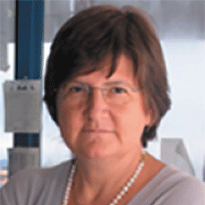
Director, Institute of Protein Biochemistry (IBP), National Research Council of Italy (CNR), Italy.
Daniela Corda PhD is a cell biologist, Director of the Institute of Protein Biochemistry of the National Research Council in Naples, Italy. She obtained her degree in Biological Sciences at Perugia University, Italy and her PhD in Life Sciences at the Weizmann Institute of Science, Rehovot, Israel. She has been working in the signal transduction and membrane lipid dynamics field for more than 20 years, first in Israel, and then at the National Institutes of Health, Bethesda, USA, for her post-doctoral studies. She moved to the “Mario Negri” Pharmacological Research Institute in Milan in 1986, and in 1987 she was one of the founders of the Consorzio Mario Negri Sud, where she served as Head of the Department of Cell Biology and Oncology from 1996 to 2003 and Director of Research and development until 2009. Since 1998 she has been active in science policy focussing on career development in Europe and on gender-related issues within European organisation such as the European Life Scientist Organisation (ELSO), the EC Marie Curie Programme, the Federation of European Biochemical Societies (FEBS) where she now chairs the Working Group on the Career of Young Scientists, and is a member of the genSET Science Leaders Panel.
Prof Corda chaired the session: Plenary Session 4 Understanding Effects and Interactions between Sexual Dimorphism, Gender and Environment at the Gender Summit 4 EU 2014.
Dr Maria del Mar García Calvente
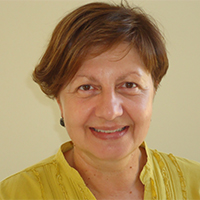
Professor, Andalusian School of Public Health, Granada, Spain.
Dr María del Mar García-Calvente is PhD, Specialist in Public Health. She is professor at the Andalusian School of Public Health since 1990, where she works as a teacher, researcher and consultant nationally and internationally. She is director of the Diploma in Gender and Coordinator of the Gender, Health and Health Services Cluster in that institution. She has extensive experience in research, leading or participating in more than 30 research projects, and has been part of the Research Network on Gender and Health (Instituto de Salud Carlos III, Spain). She has participated in several international projects, especially in Latin America. Author of more than 50 publications in scientific journals and several books and chapters. Her main area of research are gender inequalities in health, which currently leads the Atlas Project on gender inequalities in health and its social determinants (www.desigualdadesdegeneroensalud.org). Her research interests focus on gender indicators in health, informal care and its impact on quality of life and gender-sensitive research methodologies.
Dr García Calvente spoke on Guide to indicators for measuring gender inequalities in health and its determinants in the Spanish context in Plenary Session 5 Advancing Considerations of Gender in Research Methods at the Gender Summit 4 EU 2014.
Blair Dickerson
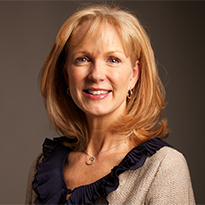
Vice-President, External Relations and Communications Directorate, The Natural Sciences and Engineering Research Council of Canada (NSERC), Canada.
Blair Dickerson joined NSERC in 2008, as Vice-President, External Relations and Communications. She has nurtured an interest in high-performing teams and is putting her passion into action at NSERC, where she is building a strong External Relations and Communications Directorate to reach out to new audiences. Before joining NSERC, Blair worked with the Solicitor General of Canada, Transport Canada, Department of National Defence, Multiculturalism and Citizenship, and Western Economic Diversification. Focussing on assignments in a highly regulated environment, she worked at Natural Resources Canada in the areas of mining, forestry and energy. In the private sector, Blair worked in the pharmaceutical sector at GlaxoSmithKline, and with the alcohol beverage industry. Blair is a strategic advisor and communications professional with over 20 years of experience in the field. She specializes in developing high-yield public-private sector partnerships to promote shared goals. Blair has a BA in Political Science from Carleton University and an MBA from Queen’s University.
Ms Dickerson spoke about Transforming Research in Canada in Plenary Session 6 Building the Gender Summit Community at the Gender Summit 4 EU 2014.
Marie Donnelly
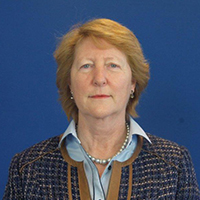
Directorate General Energy, European Commission.
Marie Donnelly is currently working with the European Commission, in the Directorate General for Energy as Director, New and renewable sources of energy, energy efficiency and innovation, responsible for: The development of the policy and actions on energy efficiency supporting the achievement of the target of 20% energy savings by 2020, including the implementation of legislative requirements for buildings, ecodesign and labelling, as well as concrete actions supporting energy saving; The development of policies and actions leading to the achievement of the EU 20% target for renewable energy (20% share of energy from renewable sources by 2020 and a 10% share of renewable energy specifically in the transport sector); Coordination of the research actions in the field of energy including the development of technologies and innovative solutions for low carbon technologies leading to their widespread market take-up (European Strategic Energy Technology Plan (SET-Plan)); and, Actions aiming at supporting the achievement of the 20-20-20 targets - 20 % greenhouse gases, 20 % better energy efficiency, and a 20 % share of renewables - through the Program “Intelligent Energy - Europe”, in co-operation with “the executive Agency for Competitiveness and Innovation.
Ms Donnelly spoke on Ensuring Smart and Sustainable Access to Energy for Women and Men in her Keynote on Day 1 at the Gender Summit 4 EU 2014.
Dr Holly Falk-Krzesinski
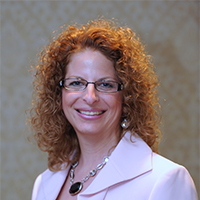
Vice President, Global Academic & Research Relations, Elsevier, USA.
Holly J. Falk-Krzesinski PhD, is the Vice President for Global Academic & Research Relations for Elsevier where she is focused on alliance formation at research institutions and federal funding agencies, especially those related to strategic planning for the research enterprise. Prior to joining Elsevier, Dr Falk-Krzesinski had been a faculty member in arts & sciences and medicine for fifteen years at Northwestern University where she led initiatives related to research development and team science. She facilitated a multitude of trans-institutional collaborative grant programs spanning art history to bioenergy, with a special interest on approaches to evaluating collaboration and interdisciplinary research, team science leadership, and research networking tools. To enable broad sharing of her experiential knowledge in combination with effective practices drawn from team research, Dr Falk-Krzesinski was a co-developer of TeamScience.net; and, through her leadership with the Annual International Science of Team Science Conference and NIH Team Science Toolkit project, Dr Falk-Krzesinski has been instrumental in developing a strong international community of practice for team science and interdisciplinary research. Dr Falk-Krzesinski continues to teach grantsmanship as an adjunct lecturer at Northwestern University, consults at universities and funding agencies on team science, and serves on the Business Steering Group and Board-alternate for ORCID. She launched NORDP in 2008, serving as the organization's founding president.
Dr Falk-Krzesinski spoke on Interdisciplinary and Team Science: Improving Collaborative Effectiveness of Research Teams in Plenary Session 3 Maximising Capacity of Science Human Capital and Knowledge Communities at the Gender Summit 4 EU 2014.
Dr Anne-Sophie Godfroy
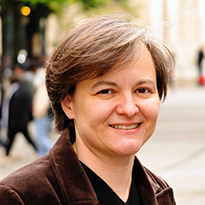
Anne-Sophie Godfroy PhD is associate professor of Philosophy at University Paris-Est-Creteil-Val-de-Marne and researcher at the research centre "Science Norms Decision" (SND, FRE 3593), a joint lab of the CNRS and the University Paris Sorbonne. Her main research interests are methodology for international comparisons, science in society, gender. For ten years, she has participated in several European research projects about gender and Science & Technology. She is currently in charge of the methodology of the GenderTime project with Prof Silvana Badaloni (University of Padova).
Dr Godfroy spoke on How to measure progress towards gender equality? in Plenary Session 5 Advancing Considerations of Gender in Research Methods at the Gender Summit 4 EU 2014.
Dr Geneviève Guinot
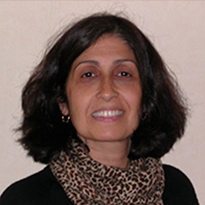
Head, Diversity Office, European Organisation for Nuclear Research (CERN).
Geneviève Guinot PhD is CERN’s Diversity Programme Leader, a position she assumed in January 2014. In this capacity she drives actions to promote diversity and assures that CERN diversity principles are integrated into all organisational policies, procedures and practices. She joined CERN in 2006 as Human Resources professional. She held various roles including HR Partner for CERN scientific, technical and administrative units as well as responsibility for different HR processes In 2009 she joined the HR Management Board in designing and implementing CERN’s new HR Strategy. She is holder of a PhD in engineering from Ecole Centrale de Paris, France and started her career as a senior scientist in the oil industry. She made the move to Human Resources more than 20 years ago and since then graduated with a Bachelor in Law and a Master in HR.
Dr Guinot spoke in Plenary Session 1 Best Practices for Gender Policy in Research Organisations at the Gender Summit 4 EU 2014.
Arvid Hallén
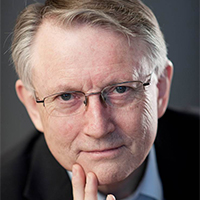
Director-General, The Research Council of Norway (RCN) since 2004, Norway.
Arvid Hallén, Director-General of The Research Council of Norway since 2004. He is a sociologist from the University of Oslo 1977. He did research in regional policy and local government studies at Norwegian Institute for Urban and Regional Studies from 1978 and acted as Director-General at the same institute from 1987 to 1995 when he joined the Research Council of Norway as head of the Culture and Society Division. Arvid Hallén has a broad experience from both the national and international level concerning steering groups, expert panels and policy bodies.
Mr Hallén spoke about The Role of Research Funders in Advancing Gender Aware Science Knowledge during the Gender Summit 4 EU 2014.
Charlotte Handberg
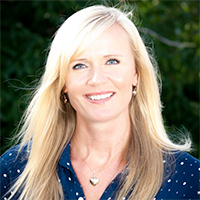
PhD Student, Marselisborg Centre, Research and Development, Public Health & Quality Improvement, Aarhus University, Denmark.
Charlotte Handberg holds a Master of Public Health (MPH), a Diploma in Advanced Nursing (SD), is a Registered Nurse (RN). She is a PhD student at the Section for Clinical Social Medicine and Rehabilitation, Department of Public Health, Aarhus University, Denmark . She works in a research department within different research projects related to rehabilitation: rehabilitation, cancer, gender studies, patient engagement, inequity in health and ICF (The International Classification of Functioning, Disability and Health).
Ms Handberg spoke on Male cancer survivors’ barriers towards participation in cancer rehabilitation in Plenary Session 5 Advancing Considerations of Gender in Research Methods at the Gender Summit 4 EU 2014.
Peter Dröll
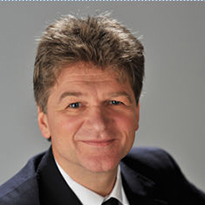
Acting Director, Innovation Union and European Research Area, Directorate General for Research & Innovation (DG RTD), European Commission
Peter Dröll is in charge of Innovation Policy Development in the European Commission's Research and Innovation Department. He oversees the implementation of the "Innovation Union", the European Innovation strategy he has co-authored while being in charge of innovation policy in the Commission's Enterprise and Industry Department. His previous positions in the European Commission include financial control of the Joint Research Centre, enforcement of EU environmental legislation, accession negotiations with Poland and coordination of the environment negotiations with all accession countries. He was a Cabinet member of Enlargement Commissioner Günter Verheugen and Head of Cabinet of the Science and Research Commissioner Janez Potočnik. Peter is a lawyer by training with a doctorate degree in German constitutional law and European law. Before joining the European Commission in 1991, Peter worked as a lawyer in a German law firm.
Mr Dröll will speak on: Gender Dimension in Research and Innovation: the way to Excellence, Jobs and Growth in his Welcome on Day 2
Dr Alexander Kurz
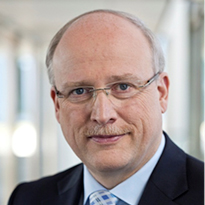
Senior Vice President Human Resources, Legal Affairs and IP-Management, Fraunhofer-Gesellschaft, Munich, Germany.
Alexander Kurz PhD was born in 1961 and studied law in Regensburg and Tübingen. Following a legal traineeship, also undertaken in Tübingen, he passed the Second State Examination in Law. He went on to receive a part-time doctoral qualification from the German University of Administrative Sciences in Speyer. From 1989 to 2000 he held a number of positions at the Forschungszentrum Karlsruhe, lastly as head of the Personnel and Social Affairs department of this research center. He then moved to CERN, the European Organization for Nuclear Research in Geneva, where until 2005 he headed the central Industrial Services Management department and was deputy head of Purchasing and Logistics. From 2005 to 2007 he was Administrative Director of GSI (now the GSI Helmholtz Center for Heavy Ion Research). While there he was responsible for setting up the legal and administrative framework for the FAIR project. In December 2007 he moved from GSI to the Forschungszentrum Karlsruhe to be its business affairs director and deputy chairman. Following the formation of the Karlsruhe Institute of Technology, Alexander Kurz became Vice President for Finance and Business Affairs as well as Acting Vice President for Human Resources. Since June 2011 he has been Senior Vice President for Human Resources, Legal Affairs and IP-Management at the Fraunhofer-Gesellschaft in Munich.
Dr Kurz spoke in Plenary Session 1 Best Practices for Gender Policy in Research Organisations at the Gender Summit 4 EU 2014.
Prof Heisook Lee (GS4EU)
 President of Center for WISET (Women in Science, Engineering & Technology), Seoul, Korea.
President of Center for WISET (Women in Science, Engineering & Technology), Seoul, Korea.
Heisook Lee received the B.S. M.Sc. and Ph.D. degrees in Mathematics from Ewha Womans University, Korea and University of British Columbia and Queen’s University, Canada in 1971, 1974 and 1978 respectively. Worked at Universitat Regensburg, Germany as a postdoctoral fellow, she was appointed Professor of Mathematics at Ewha Womans University in Seoul Korea. Professor Lee was Dean of College of Natural Sciences and Dean of Research affairs at Ewha between 1995 and 1997, 1997 and 2001. She served as Dean of Graduate School from 2006 to 2008. Her research interests include algebraic coding theory and algebraic structures over commutative rings and HRD in STEM fields. Professor Lee served as the founding Editor of Communications of the Korean mathematical Society from 1986 to 1988 and the Chief Editor for the Journal of the Korean Mathematical Society from 1994 to 1996. She is currently a member of Presidential Advisory Council on S&T. Dr. Lee is the President of the Center for WISET (Women in Science, Engineering and Technology) since 2011 after serving as a president of Korea Federation of Women Scientists associations from 2006 to 2007.
Prof Lee spoke on Introducing the Gender Summit to Asia Pacific in Plenary Session 6 Building the Gender Summit Community at the Gender Summit 4 EU 2014.
Sabine Ludwig
 Research Associate, Dieter Scheffner Center for Medical Education and Educational Research, Charité – Universitätsmedizin Berlin.
Research Associate, Dieter Scheffner Center for Medical Education and Educational Research, Charité – Universitätsmedizin Berlin.
Sabine Ludwig has studied in Paris, Shanghai, Beijing, Berlin and Frankfurt and holds advanced degrees in economics from Germany and France. Besides the economics degree, she holds an advanced degree in Chinese studies. After graduation, she worked at the European Commission in the Directorate General for External Relations in Brussels, Belgium. She participated then in the EU-China Coo-operation project “Junior Managers Training Programme” established by the European Commission and the Chinese Ministry of Foreign Trade and Economic Co-operation in Beijing, China. Following this programme, she joined the Delegation of the European Commission to China in Beijing, where she worked in the Development and Cooperation section. After six years in China, she returned to Germany in 2008 where she works at Charité - Universitätsmedizin Berlin, the Medical Faculty of Humboldt University and Free University Berlin. Her first assignment was as Research associate within the Masterprogramme International Health and since 2010, she is a member of the Curriculum Development team for the new modular medical curriculum of Charité Berlin in charge of integrating gender medicine issues and gender concepts into the new programme.
Ms Ludwig spoke on A systematic approach to integrate gender dimensions and perspectives into a newly developed medical curriculum in Plenary Session 5 Advancing Considerations of Gender in Research Methods at the Gender Summit 4 EU 2014.
Dr Karel Luyben
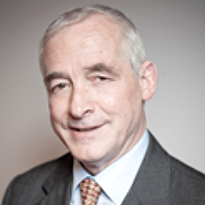
President, Conference of European Schools for Advanced Engineering Education and Research (CESAER) and Rector Magnificus, Delft University of Technology, Netherlands.
Karel Luyben studied Chemical Engineering and in1983 Karel Luyben was appointed Professor in Biochemical Engineering at the Delft University of Technology. Professor Luyben was Dean of the Faculty of Applied Sciences at the TU Delft between 1998 and 2009. He was responsible for the management and development of this large, research-oriented faculty. In 2010, Professor Luyben was appointed Rector Magnificus of the TU Delft. Together with his fellow Executive Board members, he is committed to making TU Delft a truly international university, and a centre for top-class research and education that will continue to attract talented students and scientists. In 2012 Professor Luyben was appointed as President-Elect of CESAER, the Conference of European Schools for Advanced Engineering Education and Research and he is the President of CESAER since January 2014.
Prof Luyben spoke in Plenary Session 1 Best Practices for Gender Policy in Research Organisations at the Gender Summit 4 EU 2014.
Dr Jorg Müller (GS4EU)
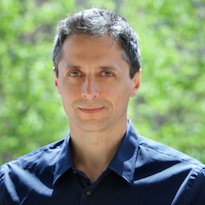
Senior Researcher, Internet Interdisciplinary Institute (IN3 – UOC), Barcelona, Spain.
Jörg Müller is currently senior researcher at the Internet Interdisciplinary Institute (IN3 – UOC) in Barcelona, Spain where he forms part of the Gender and ICT research program. He obtained his PhD in Communications at the European Graduate School (EGS) in Saas-Fee, Switzerland and holds a degree in Sociology and Computer Science from the Free-University in Berlin, Germany. He's been an expert advisor to the European Commission DG Research and Innovation. He is Adjunct Part Time Faculty in the Media Studies Program, The New School (New York, USA) where he teaches courses on web programming and media literacy. Main research interests include practice based approach to gender (in)equality, especially in relation to the valuing of professional knowledge in the new economy, and new (digital) methodological approaches to social sciences. Currently he is project manager for FP7 Coordinate Support action “GenPORT – An Internet Portal for Sharing Knowledge and Inspiring Collaborative Action on Gender and Science” (2013-2017).
Dr Müller spoke about GenPORT: Find out About the New Gateway to Gender and Science Resources and Help us Design it Better during the Knowledge Exchange Forum on Day 2 at the Gender Summit 4 EU 2014.
Dr Hwayoung Noh
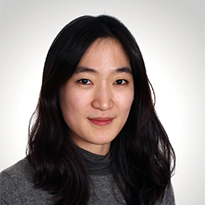 Postdoctoral Fellow, Dietary Exposure Assessment Group, International Agency for Research on Cancer – World Health Organization (IARC–WHO), Lyon, France.
Postdoctoral Fellow, Dietary Exposure Assessment Group, International Agency for Research on Cancer – World Health Organization (IARC–WHO), Lyon, France.
Hwayoung Noh is currently a postdoctoral fellow of the Dietary Exposure Assessment Group at the International Agency for Research on Cancer – World Health Organization (IARC–WHO). Her research focuses on the development and validation of international dietary assessment methodologies, and implementation of these new standardized dietary assessment tools in Asian countries. She obtained her PhD in the Department of Food and Nutrition at Seoul National University, Seoul, Korea, in 2013. She received her Bachelor’s (2006) and Master’s (2008) degree in the same department. Since 2013, she has participated in a gender innovation project, ‘Gendered Innovation in Science and Engineering in Korea’. As a researcher, she has particularly focused on how gender analysis contributes to research in the field of nutrition by considering and analyzing sex/gender differences when developing dietary assessment methodologies.
Dr Noh spoke on Reanalyzing sex/gender specific portion sizes of dish items for a dish-based, semi-quantitative FFQ for Korean adults in Plenary Session 5 Advancing Considerations of Gender in Research Methods at the Gender Summit 4 EU 2014.
Dr Clare O’Hagan
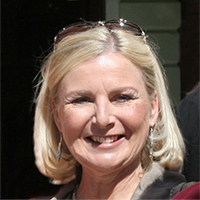
Clare O'Hagan PhD initially pursued a career in human resources, working in both manufacturing and service sectors in Fortune 500 companies. Subsequently, Clare lectured in management and business in higher- and further- education. Clare is currently employed in the University of Limerick, Ireland as Project Manager on an EU-FP7 Science-in-Society project, Female Empowerment in Science and Technology Academia (FESTA). For the University of Limerick, Clare is task leader on work package 3.1 (Awareness Raising), and work package 4.1 (Decision Making and Communications). Clare studied Human Resource Management (Dublin Institute of Technology), holds an MSc in Strategic Human Resource Management (Sheffield Hallam University), MA in Women’s Studies (University College Cork) and a PhD in Sociology and Women’s Studies (University of Limerick) which was funded by an award from the Irish Research Council. Clare holds a Higher Diploma in teaching, training and education (NUI Galway) is a Member of the Chartered Institute of Personnel and Development (CIPD) and a Fellow of the Irish Institute of Training and Development (IITD) Research interests include Equality, Gender, Management and Human Resources, Motherhood, Leadership, Sociology, Intersectionality Theory, Organisation culture, Care Work and Feminism.
Dr O'Hagan spoke on: FESTA: Challenges in Creating Gendered Organisation Change during the Knowledge Exchange Forum on Day 2 of the Gender Summit 4 EU 2014.
Prof Karen Helene Ørstavik
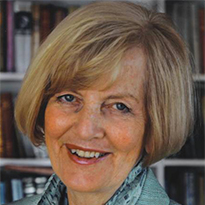
Clinical Geneticist, Professor Emerita Institute of Clinical Medicine, Rikshospitalet, University of Oslo, Norway.
Karen Helene Ørstavik MD PhD worked as a clinical geneticist in the Department of Medical Genetics, Rikshospitalet, Oslo University Hospital, Oslo, Norway. She is a professor emerita of medical genetics at the University of Oslo, Oslo, Norway. The focus of her clinical work and research has been on rare genetic syndromes associated with dysmorphic features and on X chromosome inactivation and its phenotypic consequences.
Prof Ørstavik spoke on The X Chromosome and Autoimmune Disorders in Plenary Session 4 Understanding Effects and Interactions between Sexual Dimorphism, Gender and Environment at the Gender Summit 4 EU 2014.
Dr Youngah Park (GS4EU)

President, Korea Institute of S&T Evaluation and Planning (KISTEP), South Korea.
Transition to the Creative Economy: Gender Perspective
Keynote
Dr Youngah Park serves as the President of Korea Institute of S&T Evaluation and Planning (KISTEP) since 2013. She is a Professor of Statistical Mechanics at the Department of Physics at Myongji University since 1989. After completing her undergraduate studies at Seoul National University majoring in Physics, she received her PhD in Statistical Mechanics at the University of Pennsylvania in 1987. Her research areas include critical phenomena, neural networks, soft matter, and biological physics. She has been the chair of the Women in Physics working group of Association of the Asia Pacific Physical Societies (AAPPS) since 2006 and chaired the local organizing committee of the 3rd International Conference on Women in Physics (ICWIP) in 2008. She was a member of the National Assembly of Republic of Korea from 2008 to 2012 and also served as a member of the Committee on Education, Science and Technology at the National Assembly. Her main areas of interest include role of innovation in science and technology, education, women in science, and gender issues.
Dr Park spoke on The National Status of Gender Issue and Networking in Korea in Plenary Session 6 Building the Gender Summit Community at the Gender Summit 4 EU 2014.
Dr Elizabeth Pollitzer (GS4EU)
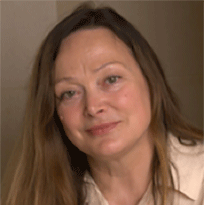
Elizabeth Pollitzer PhD is founder and Director of Portia, an organization devoted to improving gender equality in STEM and advancing the understanding of the gender dimension in STEM. She has 20 years’ experience teaching and researching in the Department of Computing at Imperial College, University of London. Her original training was in Biophysics. She now applies this scientific background to promoting effective strategies for gender equality in STEM. She is expert adviser on gender issues to the European Commission.
Dr. Pollitzer chaired the session on Career-life balance at the Gender Summit 4 EU 2014. This is an area she has extensive knowledge and experience of through the many different schemes that she helped design and implement, in particular to enable women trained in STEM to return to STEM after a family oriented career break.
Jordan Ramsey
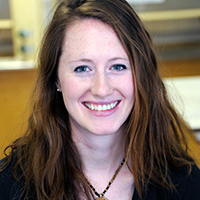
Department of Chemical Engineering and Biotechnology, University of Cambridge, UK.
Jordan Ramsey completed her undergraduate degree in chemical engineering (biomedical option) at the University of Alberta in Canada and received a scholarship to do a PhD at the University of Cambridge. She is now in the final year of her degree in Prof Sabine Bahn's laboratory at the Cambridge Centre for Neuropsychiatric Research. Her research has focused on analyzing and interpreting sex differences in proteomic and genomic serum and post-mortem brain tissue data for schizophrenia, bipolar disorder, major depression and anxiety disorder, and Asperger syndrome. This work has identified sex-specific molecular signatures for these psychiatric conditions that may reflect clinical differences between men and women in the prevalence, age at onset, course and progression, and response to treatment of these conditions.
Ms Ramsey spoke on Use and Validity of Biomarkers for Females and Males: Application in Asperger’s in Plenary Session 4 Understanding Effects and Interactions between Sexual Dimorphism, Gender and Environment at the Gender Summit 4 EU 2014.
Sybille Reidl (GS4EU)
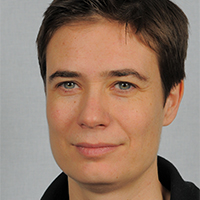
Sybille Reidl, Researcher, Centre for Economic and Innovation Research (Policies), Joanneum Research GmbH, Austria.
Mag.a Sybille Reidl studied sociology at the University of Vienna. Since 2003 she works as a researcher at the Centre for Economic and Innovation Research (POLICIES) of Joanneum Research GmbH which is focused on applied research and consulting services in the fields of science, technology and innovation (STI). Her main research areas are gender/diversity and human resources in STI (especially promotion of equal opportunities, promotion of young researchers / teenagers in natural sciences and engineering). Currently she is involved in three different gender in research projects in the fields of medicine, sensor technology and optotechnology as a gender consultant.
Ms Reidl will spoke on The challenges and potentials of gendered innovation projects: an interdisciplinary perspective in Plenary Session 5 Advancing Considerations of Gender in Research Methods at the Gender Summit 4 EU 2014.
Patricia Reilly (GS4EU)
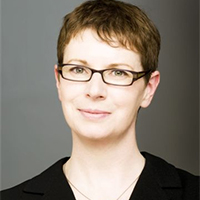
Patricia Reilly qualified as a veterinary surgeon from University College Dublin in 1996, and worked in mixed clinical practice until 2001, when she joined the Irish Department of Agriculture, Fisheries and Food. In 2004 she joined the Irish Embassy in Warsaw as Ireland's first Agricultural Attaché to Poland. On return to the Department of Agriculture in 2008, she re-joined the National Disease Control Centre, where her work involved veterinary international trade policy and contingency planning. Patricia is a graduate of the King's Inns, Dublin, and other academic qualifications include an MSc in European Food Regulation and a Diploma in European Law from the Law Society of Ireland. Patricia joined the Cabinet of Commissioner Máire Geoghegan-Quinn in February 2010, and is responsible for the health, bioeconomy and science in society programmes, as well as Joint Research Centre coordination.
Ms Reilly spoke on EU Strategies for Improving Gender Balance in Science: the Science is a Girl Thing campaign, and the Hopes for Horizon 2020 in her Keynote on Day 1 at the Gender Summit 4 EU 2014.
Dr Jolanta Reingarde
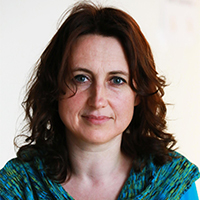
Senior Researcher/Analyst, European Institute for Gender Equality (EIGE).
Jolanta Reingarde PhD has been a senior researcher/analyst at EIGE since 2010. There she leads a research team working on the Gender Equality Index as well as co-authoring EIGE progress reports on the implementation of the Beijing Platform for Action in the EU. She studied Sociology at Vytautas Magnus University in Kaunas (Lithuania), followed by a Ph.D, also in Sociology, on the topic of violence against women. She also has wide experience researching work-life balance issues, women and research, heteronormativity at work, men, fatherhood and masculinities.
Dr Reingarde spoke on Monitoring of Gender Equality Gaps and Actions in Plenary Session 2 Enhancing Quality and Effectiveness of Research and Innovation Systems at the Gender Summit 4 EU 2014.
Prof Curt Rice (GS4EU)
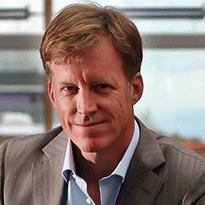
Professor, University of Tromsø, Norway, Head, Norway’s Committee on Gender Balance and Diversity in Research (KIF)
Curt Rice is a professor at the University of Tromsø and leads Norway’s Committee on Gender Balance and Diversity in Research. He also chairs the Board for Current Research Information System in Norway (CRIStin) and is a member of the Board at the University of Tromsø. Previously, he has served as Pro Rector for Research and he was the Founding Director of the Center for Advanced Study in Theoretical Linguistics: A Norwegian Centre of Excellence (CASTL). Prof. Rice is a member of the genSET Science Leaders Panel; the Gender Summits were established on the recommendation of the panel. Since participating in genSET he has written and spoken widely on university leadership and gender, particularly on his blog Science In Balance.
Professor Rice welcomed delegates to the Gender Summit 4 EU 2014.
Dr Michaela Saisana
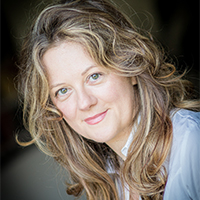
Senior Scientific Officer Composite Indicators (COIN), Project Leader, Institute for the Protection and Security of the Citizen, Unit G3: Econometrics and Applied Statistics, Joint Research Centre (JRC), European Commission.
Michaela Saisana PhD Eng. is a Senior Scientific Officer at the Joint Research Centre of the European Commission (Italy). She conducts and coordinates research (a team of 10 post-doc researchers) on multidimensional measures for policy making on social, economic and environmental issues. She is offering regular training courses on composite indicator development to European Commission Officials and to international organizations and the academia. Since 2005, she has audited over 60 well-known composite indicators, upon invitation of the United Nations, Transparency International, World Economic Forum, INSEAD, World Intellectual Property Organization, and other. She has co-authored two books: 2008 OECD/JRC Handbook on Composite Indicators and 2008 Global Sensitivity Analysis-The Primer. Her publications deal with sensitivity analysis, composite indicators, multicriteria analysis, multivariate analysis, data envelopment analysis and multi-objective optimization (20 peer-reviewed publications, 60 working papers). In 2004 she was awarded the European Commission – JRC Young Scientist Prize in Statistics and Econometrics in recognition of her research on composite indicators. She has a PhD and an MSc in Chemical Engineering.
Dr Saisana spoke on: Validating the Environment and Gender Index in Plenary Session 4 Understanding Effects and Interactions between Sexual Dimorphism, Gender and Environment at the Gender Summit 4 EU 2014.
Ylann Schemm (GS4EU)
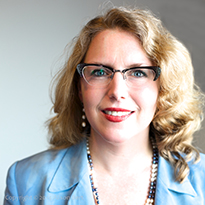
Ylann Schemm (@ylannschemm) heads Elsevier's corporate responsibility program, which focuses on advancing women in science and developing research access in the developing world. She serves as the Program Director of the Elsevier Foundation's New Scholars program, which supports projects to help early- to mid-career women scientists balance family responsibilities with demanding academic careers and addresses the attrition rate of talented women scientists. She also runs the Elsevier Foundation’s Innovative Libraries in Developing Countries program, which supports capacity-building projects in science, technology and medicine and chairs the communications group for Research4Life, a UN-pan publisher access program working to bridge the digital divide.
Ms Schemm spoke on: The Mission and Achievements of the New Scholar Programme in the Knowledge Exchange Forum session The Elsevier Foundation New Scholar Projects: Helping Women at Early Career Stage on Day 2 at the Gender Summit 4 EU 2014.
Prof Londa Schiebinger (GS4EU)
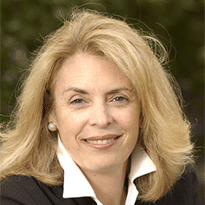
John L. Hinds Professor of History of Science, Stanford University, USA, Director, Gendered Innovations in Science, Health & Medicine, Engineering, and Environment project, EU.
Londa Schiebinger PhD is the John L. Hinds Professor of History of Science at Stanford University and Director of the Gendered Innovations project. From 2004-2010, Schiebinger served as the Director of Stanford's Clayman Institute for Gender Research. Over the past thirty years, her scholarship has analyzed the history of women's participation in science, the structure of scientific institutions, and the gendering of human knowledge. She is a member of the American Academy of Arts and Science.
Prof Schiebinger spoke on Sex and Gender Analysis in Research in Plenary Session 2 Enhancing Quality and Effectiveness of Research and Innovation Systems and Gender Analysis in Research: Preparing Researchers for Horizon 2020 during the Knowledge Exchange Forum on Day 2 of the Gender Summit 4 EU 2014.
Prof Olive Shisana
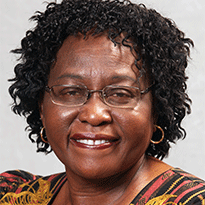
Chief Executive Officer, Human Sciences Research Council (HSRC), South Africa.
Olive Shisana PhD is Chief Executive Officer of the HSRC, Honorary Professor at the University of Cape Town, immediate past President of International Social Science Council. Prior to this she served as HSRC’s Executive Director of Social Aspects of HIV/AIDS and Health, previously Executive Director, Family and Community Health, World Health Organization, Geneva, Switzerland. She is an authority in HIV surveillance, having been a principal investigator for several second generation surveillance systems for HIV. She was one of the founders of the South African National Health and Nutrition Examination Survey as well as the Maternal and Child Mortality Surveillance. She served on many national and international scientific committees and advisory boards, such the Ministerial Advisory Committee on National Health Insurance, the US Institute of Medicine’s Committee on Methodological Challenges in HIV Prevention Trials, the Emory University Global Health Institute Advisory Board, the South African National AIDS Council and the chair of the Nelson Mandela’s 46664 Board. She has recently been appointed to head the South Africa’s BRICS Think Tank and chair of the Council of BRICS Think Tanks as well as the AIDS 2016 Global Conference South African Co-Chair. Professor Shisana recently won an award for the South African Academy of Sciences Science-for-Society Gold Medal.
Professor Shisana spoke about the need to explore and address gender issues in research and innovation that reflect and focus on the special concerns and opportunities found in Africa and Introducing the Gender Summit to Africa at the Gender Summit 4 EU 2014.
Dr Dagmar Simon

Head of Research Group, Science Policy Studies, Wissenschaftszentrum Berlin für Sozialforschung (WZB), Germany.
Dagmar Simon PhD studied Political Sciences and German Studies and obtained her PhD at the Free University of Berlin (Dr. rer. pol). Since 1989 she is a staff member of the Social Science Research Center Berlin (WZB), first working as head of the department of research planning and coordination, then, since 1998 carrying out scientific projects in the fields of Evaluation and Science Policy Studies. From 2004 to 2007, Dagmar Simon and Andreas Knie co-founded the project group “Science Policy Studies”, while from 2006 to 2007 Dagmar Simon was in charge of the scientific coordination of the then newly founded Institute for Research Information and Quality Assurance (iFQ). Since 2008 Dagmar Simon is the head of the WZB’s research group “Science Policy Studies” focusing on research in the fields of Evaluation Studies, Science Policy Studies, Analysis of Organizations and Gender Studies. She is a national expert in the working group "Research Institutions and Human Resources" of the OECD, a member of the working group Research-Oriented Standards on Gender Equality of the German Research Foundation and member of the interdisciplinary working group „ Excellence Initiative“ of the Berlin-Brandenburg Academy of Sciences.
Dr Simon spoke on Institutional Accountability and Practices Surrounding Gender in Plenary Session 3 Maximising Capacity of Science Human Capital and Knowledge Communities at the Gender Summit 4 EU 2014.
Valdimir Sucha
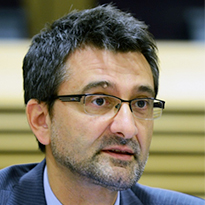
Director-General, Directorate General Joint Research Centre (JRC), European Commission.
Vladimir Šucha is Director General of the Joint Research Centre of the European Commission, its in-house scientific service. He was Deputy Director General of the JRC between 2012 and 2013. Prior to that, he spent 6 years in the position of director for culture and media in the Directorate-General for Education and Culture of the European Commission. Before joining the European Commission, he held various positions in the area of European and international affairs. Between 2005 and 2006, he was director of the Slovak Research and Development Agency, national body responsible for funding research. He was principal advisor for European affairs to the minister of education of the Slovak Republic (2004-2005). He worked at the Slovak Representation to the EU in Brussels as research, education and culture counselor (2000-2004). In parallel, he has followed a long-term academic and research career, being a full professor in Slovakia and visiting professor/scientist at different academic institutions in many countries. He published more than 100 scientific papers in peer reviewed journals.
Mr Sucha will chaired Plenary Session 1 Best Practices for Gender Policy in Research Organisations at the Gender Summit 4 EU 2014.
Chiara Tamburini
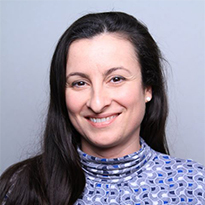
Secretariat of the FEMM Committee, European Parliament.
Chiara Tamburini has a Master degree in Human Rights from the Catholic University of Louvain-La-Neuve – Facultés Universitaires Saint-Louis (Belgium) and a degree in International Law from the University of Bologna (Italy). From 1997 to 2000, she worked as a lawyer at the European Court of Human Rights in Strasbourg (France). Since 2000, she is working in different positions at the European Parliament and namely, since 2013, she is an administrator in the Secretariat of the Committee on Women’s Rights and Gender Equality. Her main areas of expertise cover gender-based violence and women in decision making.
Ms Tamburina spoke at the Gender Summit 4 EU 2014.
Riitta Tolvanen
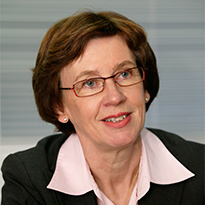
Senior Vice President, Human Resources, VTT (Technical Research Centre of Finland), Finland.
M.Sc (Econ.& Bus.Adm.) Riitta Tolvanen is working as S.V.P, Human Resources at VTT Technical Research Centre of Finland. Her main responsibilities are talent acquisition, competence development and performance management, including occupational wellbeing, personnel policies, co-operation with labor union representatives, HR ICT and other HRM issues. As a member of VTT Executive management team she is responsible also for HR-related strategic issues and management and leadership support. She has a long experience in HR as well as in business management in companies operating in Finland, Scandinavia, Baltics and Russia. She has operated as a temporary lecturer of management in Aalto University. Her special interests are in foreseeing the new elements and expectations for management / leadership in the changing work life as well as organization culture issues.
Ms Tolvanenl spoke in Plenary Session 1 Best Practices for Gender Policy in Research Organisations at the Gender Summit 4 EU 2014.
Angelika Trübswetter (GS4EU)
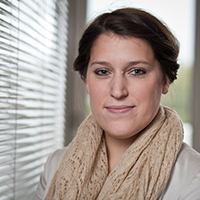
Angelika Trübswetter works as a social scientist at the department "Responsible Research and Innovation" at the Fraunhofer-Gesellschaft in the areas of »user-centred research planning« and »gender and diversity in organizations«. She is adding her expertise as educational scientist as well as empirical social researcher to different projects. The basic focus of her research is on careers in science. Through additional qualification in the area of Design Thinking at the Hasso-Plattner-Institute, she also operates at the interface between social science research and design. Angelika Trübswetter is furthermore involved in developing new workshop formats to in order to promote young scientists.
Ms Trübswetter spoke on Creating Futures in Science Project: How Institutions Can Better Support Career Development Decisions for Early Stage Female Researchers at the Gender Summit 4 EU 2014.
Dr Lieve Van Woensel
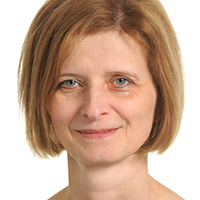
STOA Research Administrator, Science and Technology Options Assessment Unit, Directorate for Impact Assessment and European Added Value, Directorate-General for Parliamentary Research Services, European Parliament.
Lieve Van Woensel has a PhD in Physics from the Catholic University of Leuven (Belgium) and a postgraduate degree in Business Administration. From 1988 to 1996, she worked for the Belgian regional government of Flanders and later the Flemish agency for the promotion of innovation and research in industry. In 1996, Lieve joined the European Commission. At DG Research, she helped to develop the first European Science and Society Action Plan, covering actions for gender in science. Later she became a policy officer responsible for improving SME participation in European research projects. Since 2012, Lieve has been a research administrator at STOA (Science and Technology Options Assessment), an independent scientific advisory body at the European Parliament.
Dr Van Woensel chaired the session Plenary Session 5 Advancing Considerations of Gender in Research Methods at the Gender Summit 4 EU 2014.
Prof Isabelle Vernos (GS4EU)
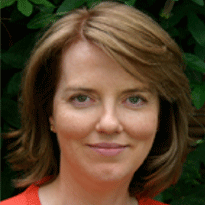
ICREA Research Professor, Center for Genomic Regulation (CRG, Spain), Member of the European Research Council (ERC) scientific Council, Europe.
Isabelle Vernos PhD is an ICREA Research Professor in the Cell and Developmental Biology program at the Center for Genomic Regulation (Barcelona, Spain) where she chairs the office for Gender Balance Affairs. She was nominated EMBO member in 2005 and she serves as advisor and referee for several European and non-European research organisations and Institutes. Since 2012, she is a member of the Advisory Board for Science, Technology and Innovation for the Ministry of Economy and Competitivity in Spain. Isabelle Vernos is a member of the ERC scientific Council since 2011 and chairs its Gender Balance working group since 2013.
Professor Vernos spoke about the gender equality initiatives introduce at ERC during the last few years, and the research initiated to better understand the impact of research grants of the careers of women and men, both applicants and PIs at the Gender Summit 4 EU 2014.
Assoc. Prof Claartje Vinkenburg (GS4EU)

Associate Professor of Organizational Behavior, Amsterdam Center for Career Research Faculty of Economics and Business Administration, VU University Amsterdam, Netherlands.
Claartje J. Vinkenburg is Associate Professor of Organizational Behavior and managing director of the Amsterdam Center for Career Research at VU University Amsterdam. Her research, partly funded by the European Research Council, deals with gender and ethnic diversity in professional and academic careers, critically exploring the impact of implicit bias, normative beliefs, and discursive practices on selection and promotion processes, career patterns and outcomes. Claartje is responsible for a course on Leading Diversity in Organizations and a thesis Master Class, and supervises various PhD candidates.
Dr Vinkenburg spoke on Capturing Gendered Career Paths of ERC Grantees and Applicants in Plenary Session 3 Maximising Capacity of Science Human Capital and Knowledge Communities at the Gender Summit 4 EU 2014.
Dr Wanda Ward (GS4EU)

Director, Office of Integrative Activities, National Science Foundation (NSF), USA.
During her tenure at the United States National Science Foundation (NSF), Wanda E. Ward PhD has served in a number of science and engineering policy, planning and program capacities, including Head of the Office of International and Integrative Activities, Senior Advisor to the NSF Director; Assistant to the NSF Deputy Director for Human Resource Development; Deputy Assistant Director for Social, Behavioral, and Economic Sciences; and Deputy Assistant Director, Education and Human Resources. Ward provided critical leadership for development of several NSF-wide activities, including the Human and Social Dynamics priority area, the Science of Learning Centers program, Cyberinfrastructure and the Social Sciences, the ADVANCE program, the Innovation through Institutional Integration activity, and the Career-Life Balance initiative. Ward has also served on the President's National Science and Technology Council subcommittees and interagency working groups in the areas of science education and workforce development, and the social, behavioral and economic sciences. Prior to joining NSF, Ward was an associate professor of psychology and founding director of the Center for Research on Multi-Ethnic Education at the University of Oklahoma, Norman. She received a BA in psychology as well as the Afro-American Studies Certificate from Princeton University and a PhD in psychology from Stanford University. Ward was awarded a Ford Foundation Fellowship, the 2005 American Psychological Association (APA) Presidential Citation, the 2006 Federation of Behavioral, Psychological and Cognitive Sciences Richard T. Louttit Award, and the 2006 U.S. Presidential Rank Award for Distinguished Executive. Dr Ward Chaired the Organising Committee of the Gender Summit 3 - North America.
Dr Ward will spoke on Creating a Roadmap for all Stakeholders and Actors in Plenary Session 2 Enhancing Quality and Effectiveness of Research and Innovation Systems and on Creating a Community of Experts in Plenary Session 6 Building the Gender Summit Community at the Gender Summit 4 EU 2014.
Dr Juliet Webster
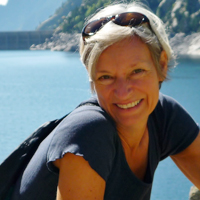
Director, Gender and ICT Programme, Internet Interdisciplinary Institute, Open University of Catalonia (UOC), Spain (GenPORT project co-ordinator).
Juliet Webster is the Director of the Gender & ICT Programme, at the Internet Interdisciplinary Institute (IN3), Open University of Catalonia in Barcelona. Her work covers gender equality at work, and mainly in science and technology professions. She is the coordinator of the EU FP7 project ‘GenPORT: an internet portal for sharing knowledge and inspiring collaborative action’ (www.genderportal.eu). This project collects, organises and offers online the world’s best research resources, statistics, good practices, and toolkits for gender equality in science, technology and innovation. She is also the leader of an EU Committee on Science and Technology (COST) Action Working Group on Virtual Work – Creativity, Skills, Knowledge and New Occupational Identities (thedynamicsofvirtualwork.com). Dr Webster has held posts at several universities in Europe, including Edinburgh, Vienna, Trinity College, Dublin. She has also worked on gender equality policies for the Information Society in the European Commission, and as an external consultant on gender equality to the European Commission and the European Parliament Committee on Women’s Rights. Her books include Shaping Women’s Work: Gender, Employment and Information Technology (1996, Longman, London); The Information Society in Europe: Work and Life in an Age of Globalisation (2000, Maryland, USA, Rowman and Littlefield); and Office Automation: the Labour Process and Women’s Work in Britain (1990, London, Simon and Schuster).
Dr Webster spoke about GenPORT: Find out About the New Gateway to Gender and Science Resources and Help us Design it Better during the Knowledge Exchange Forum on Day 2 at the Gender Summit 4 EU 2014.

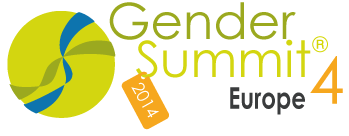
















 President of Center for WISET (Women in Science, Engineering & Technology), Seoul, Korea.
President of Center for WISET (Women in Science, Engineering & Technology), Seoul, Korea. Research Associate, Dieter Scheffner Center for Medical Education and Educational Research, Charité – Universitätsmedizin Berlin.
Research Associate, Dieter Scheffner Center for Medical Education and Educational Research, Charité – Universitätsmedizin Berlin.

 Postdoctoral Fellow, Dietary Exposure Assessment Group, International Agency for Research on Cancer – World Health Organization (IARC–WHO), Lyon, France.
Postdoctoral Fellow, Dietary Exposure Assessment Group, International Agency for Research on Cancer – World Health Organization (IARC–WHO), Lyon, France.





















